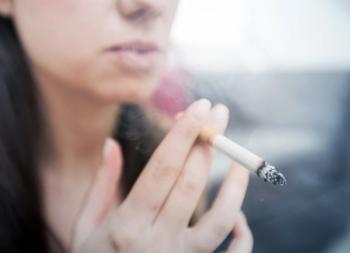
A recent study found that COVID-19 infections within 10 weeks after embryo transfer show no correlation with in vitro fertilization pregnancy outcomes.

A recent study found that COVID-19 infections within 10 weeks after embryo transfer show no correlation with in vitro fertilization pregnancy outcomes.

A study recently published in Nature Mental Health found how social stress in adolescence can have long-lasting effects in female mice, with implications for postpartum depression (PPD) in humans.

A recent study found that human papillomavirus vaccination when aged under 20 years, coupled with active surveillance for cervical intraepithelial neoplasia grade 2, significantly lowers the risk of cervical intraepithelial neoplasia grade 3 or cervical cancer.

Discover how health-related social needs, such as transportation access and financial constraints, hinder mammogram uptake among women aged 50 to 74 years.

Delve into the nuanced risks of venous thromboembolism and major bleeding post-gynecologic noncancer surgery, exploring procedure-specific variations and the implications for thromboprophylaxis strategies.

Review some of the top stories from the Contemporary OB/GYN website over the last week, and catch up on anything you may have missed.

A recent study revealed that employing maternal heart rate monitoring alongside fetal heart rate monitoring during labor significantly decreases the incidence of neonatal encephalopathy and severe neonatal acidemia.

Investigating the impact of prenatal vitamin C supplementation on lung function and wheeze occurrence in offspring of pregnant smokers, revealing insights into mitigating respiratory risks.

A comprehensive investigation confirmed Ovaprene's non-hormonal design achieves consistent contraceptive efficacy, paving the way for further pivotal trials in pregnancy risk assessment.

A recent study revealed a correlation between high doses and prolonged duration of exogenous gonadotropin use during in vitro fertilization and increased embryonic mosaicism alongside diminished live birth rates, prompting reconsideration of dosage and duration protocols.

In a recent interview, Cheruba Prabakar, MD, FACOG, shed light on the rising prevalence of sexually transmitted infections in the United States and the need for improved awareness and testing, particularly for overlooked conditions such as trichomoniasis.

Delve into the findings of a recent study revealing the heightened risk of developing uterine fibroids among Black women with a maternal history of the condition, shedding light on crucial implications for patient care and advocacy.

A recent analysis reported a high rate of mistreatment during childbirth, with the prevalence of mistreatment types differing between marginalized groups.

Jenell Stewart, DO, MPH, discusses the factors impacting the poor uptake of potential STI prophylaxes including doxycycline.

Learn about the symptoms of vulvovaginal atrophy and their frequency and impact in postmenopausal women, leading to extreme discomfort in some cases.

A recently published study in JAMA sought to determine if there is a link between acetaminophen use during pregnancy and children’s risk of developing autism, ADHD, or intellectual disabilities.

As a potential alternative to antibiotic treatments, this investigational immunization offered protection for several years.

Learn how to prepare for your menopause healthcare visit effectively and make the most out of your time with health care professionals, as advised by experts selected by The Menopause Society.

A new study revealed that hybrid vaginal ovules, incorporating curcumin and miconazole nitrate, offer effective relief against Candida albicans, potentially revolutionizing treatment for vulvovaginal candidiasis with reduced dosing frequency and adverse effects.

Learn from Paige Meizlik, MD, MSTR, about the FDA's Fast Track Designation for nipocalimab, offering hope for addressing the critical unmet needs in treating fetal neonatal alloimmune thrombocytopenia and advancing maternal-fetal immunology research.

New research led by the National Institute of Allergy and Infectious Diseases reveals sustained antibody levels in infants born to vaccinated mothers, underscoring the importance of maternal vaccination in safeguarding newborns against COVID-19.

A recent study by Allara Health revealed statistics linking polycystic ovary syndrome to significant workplace productivity decline, underscoring the need for comprehensive care and heightened awareness among employers and providers.

Carolyn Kay, MD, discusses the latest ASCCP guidelines and the introduction of dual stain cytology for improved HPV detection and patient management, aiming to alleviate anxiety and enhance efficacy in cervical cancer prevention.

Delve into the complexities of primary pulmonary arterial hypertension, exploring its clinical manifestations, recommended management strategies, and the pressing need for further research, particularly in the context of pregnancy.

Shefali Mavani Shastri, MD, FACOG, addresses the complex intersection of cultural, religious, and medical factors affecting fertility treatment decisions among Muslim women during fasting holidays.

Discover the latest guidelines from the US Department of Health and Human Services, emphasizing the importance of informed consent in sensitive medical examinations, bolstering patient rights and trust.

Review some of the top stories from the Contemporary OB/GYN website over the last week, and catch up on anything you may have missed.

Delve into the complex interplay between genital infections, antibiotic treatments, and the heightened risk of preterm birth, underscored by recent research findings in Antibiotics.

Cande Ananth, PhD, MPH, discusses a study exposing discrepancies in CDC maternal mortality data, highlighting errors in tracking methods and persistent racial disparities in maternal mortality rates.

A recent regression model analysis unveils a 5% prolonged period to menopause in women with polycystic ovary syndrome, prompting further investigation into the condition's impact on reproductive health and the need for diverse longitudinal studies.